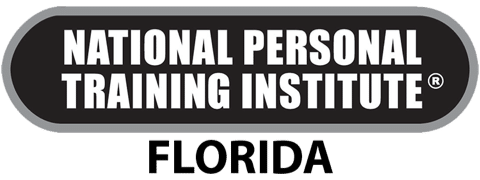
Financial aid (may be available)

Financial aid (may be available)

Financial aid (may be available)

Financial aid (may be available)

Financial aid (may be available)

$4,750 to start
$9,500 total

$6,450 to start
$12,900 total

Financial aid (may be available)
$23,297 total
$4,299 total
$16 total
No cost info
$1,597 total
$649 total
$600 total
No cost info
$1,597 total
$1,949 total
Are you interested in a career in nutrition and want to know more about applied nutrition classes in Deltona? Look no further! In this blog post, we will explore what applied nutrition is, the training requirements, what to look for in a class, what to expect from the day-to-day class, the certification process, how to find related jobs, and what other classes you can take after becoming an applied nutritionist. So let's dive in!
Applied nutrition is a field that focuses on the practical application of nutrition science to promote health and well-being. Applied nutritionists work with individuals, communities, and organizations to develop and implement nutrition plans and programs that address specific health concerns. They may work in a variety of settings, including hospitals, schools, fitness centers, and private practice.

To become an applied nutritionist, you will need to complete a training program that covers the fundamental principles of nutrition science and its practical applications. These programs are typically offered by vocational schools, community colleges, or online platforms. The duration of the program can vary, but it usually takes around 6 months to 2 years to complete.
When choosing a training program, it is important to ensure that it is accredited by a reputable organization such as the Commission on Accreditation for Dietetics Education (CADE) or the Accreditation Council for Education in Nutrition and Dietetics (ACEND). Accreditation ensures that the program meets certain standards of quality and will provide you with the knowledge and skills necessary to practice as an applied nutritionist.
When searching for applied nutrition classes in Deltona, there are several factors to consider to ensure you find the best program for your needs:
In an applied nutrition class, you can expect to learn a wide range of topics related to nutrition science and its practical applications. Here are some examples of what you might cover:
Classes may be a combination of lectures, group discussions, hands-on activities, and case studies. You will have the opportunity to ask questions, participate in class discussions, and collaborate with your classmates on projects and assignments.
After completing your applied nutrition training program, you may choose to pursue certification to further enhance your credentials and professional standing. While certification is not always required to practice as an applied nutritionist, it can demonstrate your commitment to the field and may increase your job prospects.
There are several organizations that offer certification for applied nutritionists, such as the Board for Certification of Nutrition Specialists (BCNS) and the Certification Board for Nutrition Specialists (CBNS). These certifications typically require you to pass an exam that assesses your knowledge and skills in applied nutrition.
Once you have completed your applied nutrition training and, if desired, obtained certification, you will be ready to start your career as an applied nutritionist. Here are some tips to help you find related job opportunities:
Becoming an applied nutritionist is just the beginning of your journey in the field of nutrition and health. There are several other classes and certifications you can pursue to expand your knowledge and expertise. Here are some examples:
These are just a few examples of the many specialized areas within the field of nutrition. Exploring these options can help you further develop your skills and open up new career opportunities.
Applied nutrition is a rewarding career path that allows you to make a positive impact on people's health and well-being. By completing a training program in applied nutrition, you will gain the knowledge and skills necessary to develop and implement effective nutrition plans and programs. Whether you choose to work in a hospital, school, fitness center, or private practice, there are ample job opportunities available for applied nutritionists.
If you're interested in exploring applied nutrition classes in Deltona or other vocational training programs, visit Dreambound. Dreambound is the largest platform for students to find vocational training programs, such as allied health or industrial trades. Their mission is to provide all the information students need to find the perfect class, including information on applied nutrition programs near you. Good luck on your journey to becoming an applied nutritionist!
Dreambound has put together numerous guides to help you navigate the certification process in this field, tailored for various cities. For insights into the process or requirements in other states, see some of our additional guides below.
Thinking about all of the factors involved in making a career shift? Take a look at some of the guides we've written to help you in your journey.
Dreambound's platform allows prospective students to find the right educational program for them through searching, filtering, and connecting with our extensive selection of career & technical education partners.
Dreambound has over 70 programs across healthcare, technology, business, and industrial trades. This includes programs such as Medical Billing, Cybersecurity, and welding.
Some of our schools offer financial aid for those who qualify. Many others offer payment plans, where you can pay the cost of class over time.
Yes, Dreambound offers many online programs. On Dreambound's search, you can filter by online, in-person, and hybrid (part online, part in-person).
Dreambound is completely free for you to use! We are supported by schools and organizations who pay to advertise on our website, so we can offer all of our career resources for free.